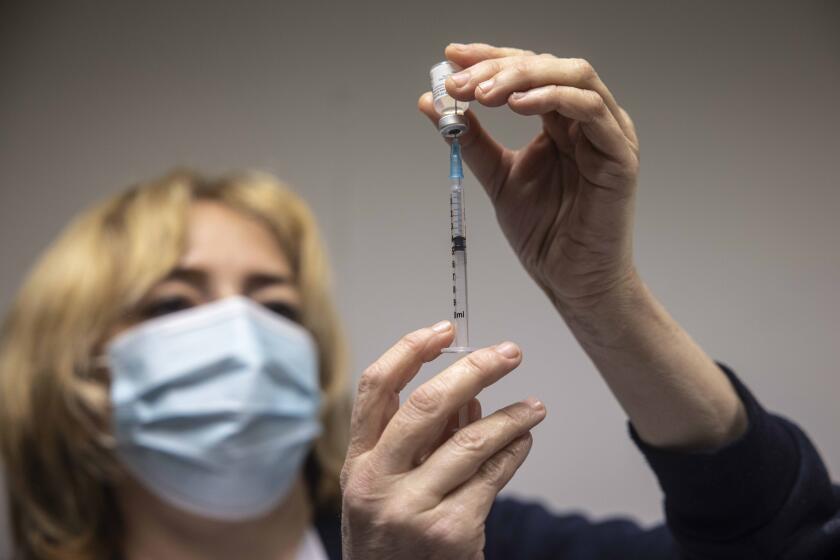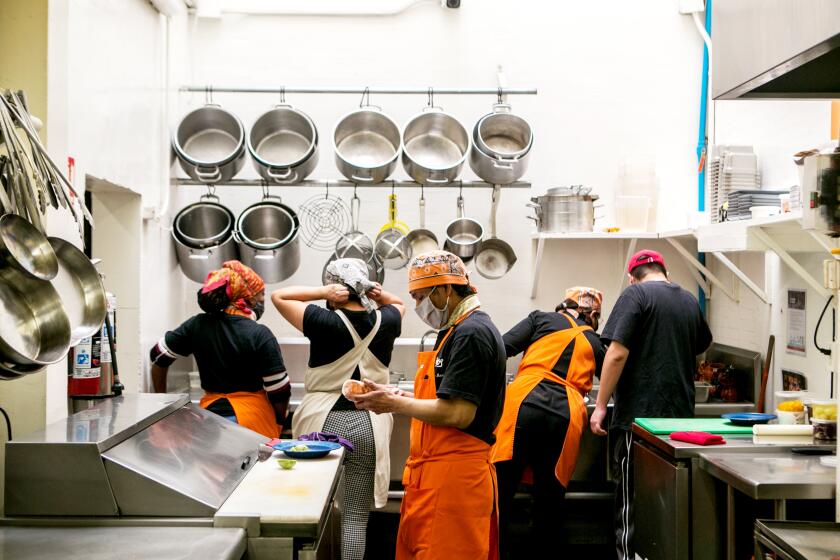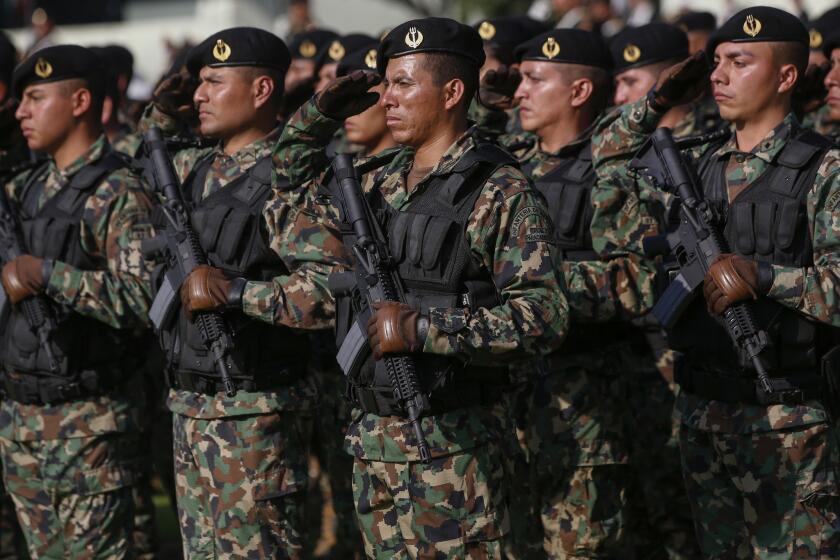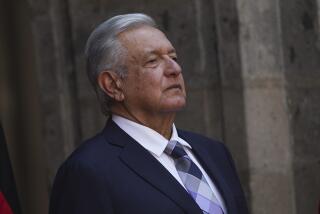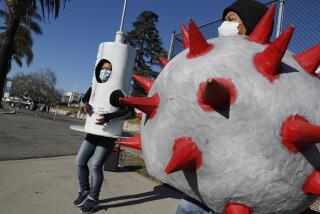As Mexico enters the darkest days of the COVID-19 pandemic, its vaccination plan takes a hit
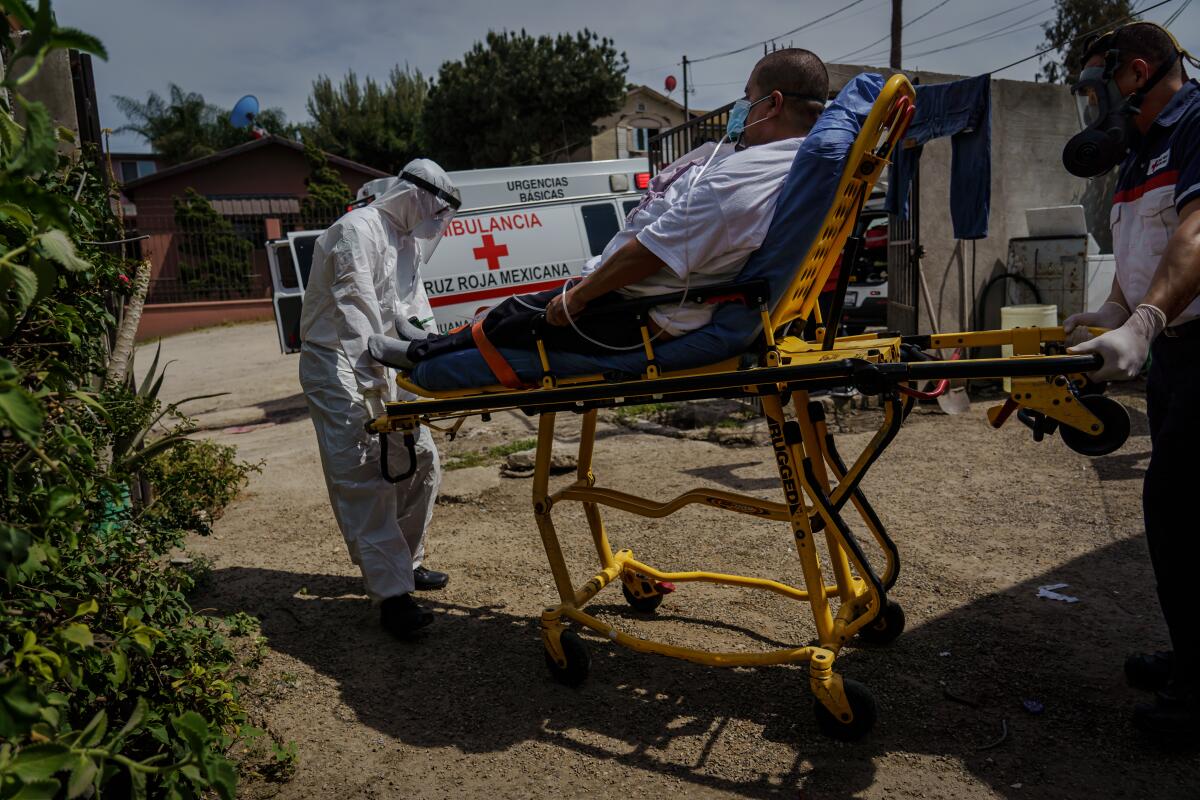
MEXICO CITY — Nearly a year into the COVID-19 pandemic, Mexico is entering its darkest phase yet.
More people are infected than at any point before, including the nation’s president, Andrés Manuel López Obrador. Hospitals in many states are near capacity, ventilators and oxygen tanks are in scarce supply and every day seems to bring a new record death toll.
At a temporary medical center assembled on a Mexico City military base, the morgue has run out of space.
“In the end you’re just stacking people in piles,” said Dr. Giorgio Alberto Franyuti Kelly, chief of biosecurity for the military, who treats patients at the makeshift hospital.
Large-scale vaccination is widely seen as the clearest way out. Yet this last week the government announced that its inoculation program — one of the most ambitious in Latin America — had essentially come to a standstill.
Poor countries face long waits for injections as the U.S. and others buy up nearly all the global supply of Pfizer and Moderna vaccines.
The country of 128 million people has received just 766,350 doses of vaccine, all produced by Pfizer-BioNTech.
That figure was supposed to hit 1.5 million by the end of the month, but Pfizer now says it can’t meet that goal because it is remodeling one of its factories in Europe to eventually boost production.
Mexican officials have described the delay as a minor setback and said shipments from Pfizer are expected to resume Feb. 15.
“It is simply going to be temporarily postponed,” said Mexico’s undersecretary of health, Dr. Hugo López-Gatell, who is leading the nation’s pandemic response.
But health experts warned that the pause in vaccinations could have serious consequences, because roughly half a million medical workers who have received an initial dose will be forced to wait longer than is optimal for the critical second dose.
Pfizer says its shots should be given three weeks apart.
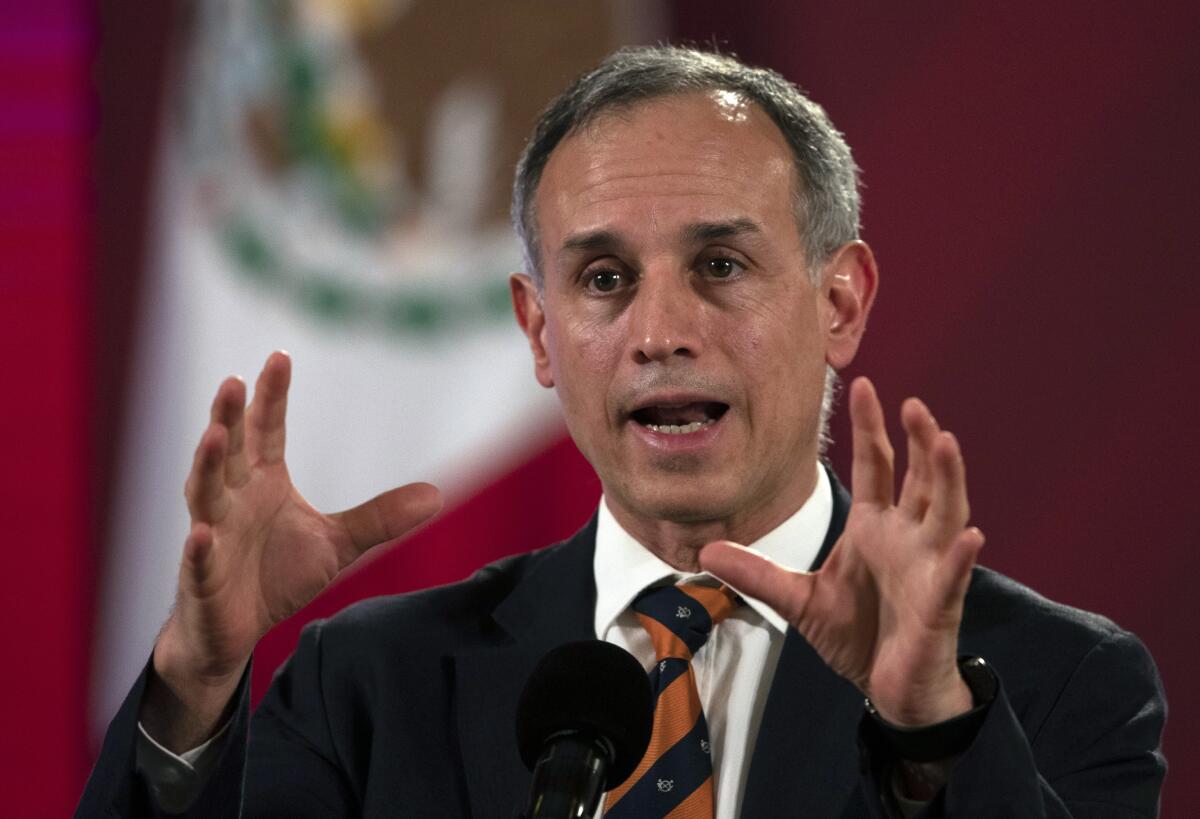
López-Gatell said there is no cause for panic, pointing to studies that show that the vaccine may still be quite effective if the second dose is administered within four weeks.
After failing to acknowledge the threat of the coronavirus early in the pandemic and conduct the widespread testing needed to fight it, the Mexican government earned praise for its vaccination strategy.
Early on, Mexico made agreements with several companies working on vaccines, and it was the first nation in Latin America to begin vaccination, on Dec. 24.
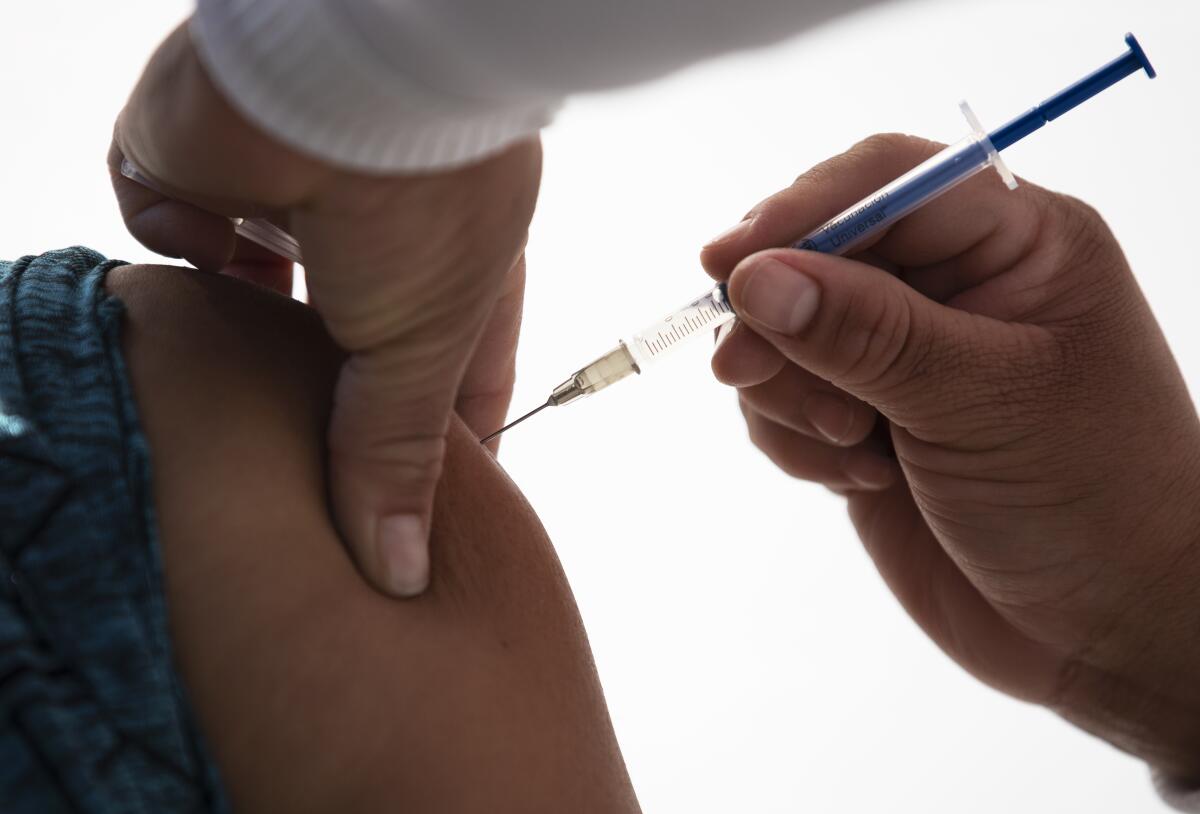
Officials here said they have already made deals to purchase enough vaccine to inoculate the entire country.
They have signed agreements with Pfizer, China’s CanSino Biologics and the British company AstraZeneca to purchase enough vaccine for 128 million people. They are also trying to line up enough of the Sputnik V vaccine from Russia for 12 million more.
Buying from an array of companies helps diversify risk and protect Mexico from unforeseen events such as this month’s postponement of deliveries from Pfizer, say officials in the Foreign Ministry, which helped negotiate the deals. Still, there is no official delivery date for vaccines from most of the companies.
The Pfizer delay couldn’t have come at a worse time.
Mexico has officially recorded nearly 150,000 official COVID-19 deaths — the fourth-highest death toll in the world — although officials acknowledge that the true count is much higher. Last year the country tallied 274,486 more deaths of all types than in a normal year, and health experts said the vast majority are probably attributable to the pandemic.
Epidemiologists blame the current surge on the Christmas holiday, when many families gathered in large groups despite pleas from health authorities.
They said deaths occurring over the last week are probably the result of gatherings on Dec. 24. Another, larger wave of deaths is expected in the next five weeks, a consequence of celebrations to mark New Year’s and Three Kings Day, on Jan. 6.
“It’s a giant snowball,” Dr. Laurie Ann Ximénez-Fyvie, who runs the microbiology laboratory at the National Autonomous University of Mexico, told the Reforma newspaper. “What’s happening right now is a perfect storm, the result of three holidays each a week apart.”
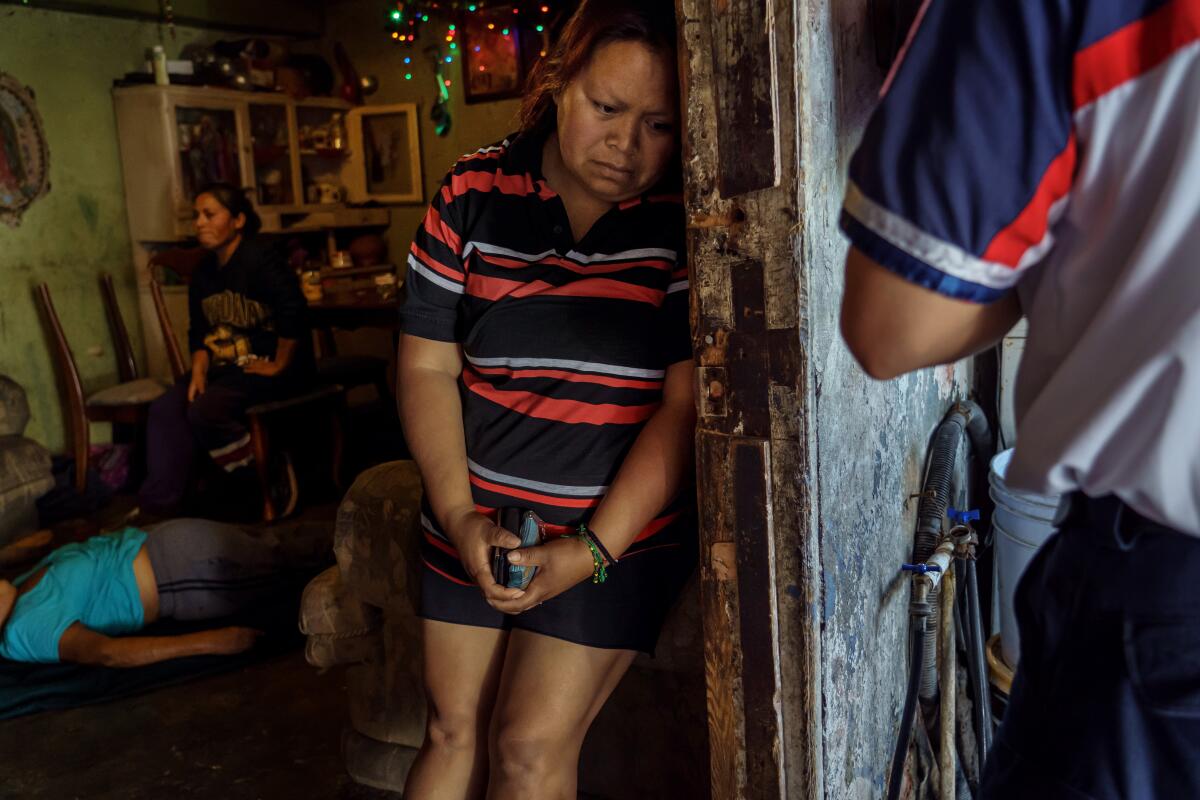
For doctors in COVID-19 wards, work has become a nightmare which becomes more frightening every day.
“Death by COVID-19 is getting more grotesque,” said Franyuti, the military doctor.
During several long shifts in recent weeks, he has been one of only a handful of doctors caring for more than 100 critically ill coronavirus patients. Without enough ventilators, he sometimes watches patients gasp for breath until they die.
That’s what happened last week with a 35-year-old named Pedro.
“I had to let him die in agony because I had no place to transfer him,” Franyuti said. “I could only hold his hand.”
He expressed anger that Mexico City waited until late December to enter into a second lockdown, despite data that showed cases were rising, and said he is upset that the city has allowed restaurants to resume outdoor dining.
“You have to establish measures that limit people’s ability to put themselves at risk,” he said.
Mexico City’s vibrant and risk-taking restaurant scene is on the verge of disappearing in the wake of the pandemic.
The vaccine distributed so far appears to have gone almost exclusively to front-line healthcare workers. Franyuti, who recently received his second dose, said he was encouraged that distribution guidelines were being followed — a notable achievement in a country often hampered by corruption.
López Obrador announced that he had tested positive for COVID-19 and was experiencing mild symptoms Sunday. The president almost never wears a mask in public, including during his daily news conferences, which are sometimes attended by dozens of fellow officials and journalists.
López Obrador, a center-left populist who has maintained high approval ratings since taking office in 2018, has been criticized by some for his pandemic response, including his refusal to invest in widespread testing. But he has been willing to spend money when it comes to building a robust vaccination plan.
At first, the president insisted that all vaccination efforts be carried out exclusively by the military, which he has turned to again and again in recent years to handle an array of civilian matters, from infrastructure projects to immigration enforcement.
The U.S. decision to drop drug trafficking charges against Gen. Salvador Cienfuegos shines a light on Mexico’s increasingly powerful military.
But last week, after news of the Pfizer delay and intense pressure from state politicians, he gave the nation’s governors permission to acquire vaccines on their own as long as they only buy vaccines that have been approved for use in Mexico.
Local leaders welcomed the decision, although some criticized the president for waiting a month and a half to give them authorization, saying global competition for vaccines will mean delays of more than a year.
“The world’s supply of vaccines has been spoken for,” said Miguel Riquelme, the governor of Coahuila state, which borders Texas.
The prospect of long wait times has spurred concerns about a black market.
The Federal Commission for Protection against Health Risks — Mexico’s version of the U.S. Food and Drug Administration — warned last week about the illegal sale of vaccines on the internet, in pharmacies and in hospitals.
In particular, it called attention to the unauthorized sale of a vaccine made by Moderna, which has not been approved for use in Mexico. Officials are presumably concerned about the Moderna vaccine being smuggled across the border from the United States, where it is produced.
There has also been increasing talk of “vaccine tourism,” in which those with means travel to countries where the vaccine is more widely available. Private doctors, who were not a part of the initial vaccination plan, have spoken of going to the U.S. to get vaccinated.
Last week, Florida Surgeon Gen. Scott Rivkees issued an advisory requiring those distributing vaccines in the state to verify that the patient is at least a part-time Florida resident. The move comes after several news reports suggested that wealthy people from other countries, including Mexico, were traveling there to get vaccinated.
Start your day right
Sign up for Essential California for the L.A. Times biggest news, features and recommendations in your inbox six days a week.
You may occasionally receive promotional content from the Los Angeles Times.
More to Read
Sign up for Essential California
The most important California stories and recommendations in your inbox every morning.
You may occasionally receive promotional content from the Los Angeles Times.
